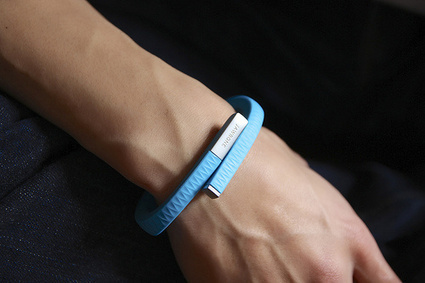La FDA clarifie sa position concernant les applications mobiles de santé
15/10/2013« Fitness 2.0 » : la mesure de soi sera-t-elle la prochaine révolution ?
15/10/2013Using Body Trackers With Patients
Body Trackers are the small devices that we wear on our bodies that track our every motion, providing a lot of data that could be beneficial for patient care.
Doctors always wonder what their patients actually do after being told to “lose weight” or “eat healthier.” Well, with devices like this and access by medical staff to their patients’ logs you can get a pretty detailed picture. The idea that their “doctor is watching” might be enough to motivate people to make permanent healthy changes.
The flip side is the information can be pretty overwhelming. Logging food can be a daunting task and people are notorious for under-reporting what they eat. A patient might get overwhelmed by all the charts and graphs and just throw their hands up and walk away.
What are the different types of Body Trackers:
Wrist: Fitbit, Jawbone UP, Nike Fuel all sit on the wrist as a bracelet and track every motion. Many also have the ability to track sleep and can let you know how much REM sleep you’ve gotten.
Wrist w/pulse: MyBasis has a tightly fitting watch that tracks heart rate patterns, motion, perspiration and skin temperature throughout the day for a more accurate picture of what your body is doing.
Waistband: FitBit is the king right now of the waistband crowd (although they just introduced a wrist version). Same basic tracking but it tucks insideyour waistband so you don’t have to advertise what you’re doing.
Armband and other areas: Devices like the BodyBugg sit on the upper arm instead of the wrist or waistband. There are also several devices just launched or in development phase which have sensors built into clothing.
These devices track sleep patterns and movement throughout the day and most of them also have a robust meal diary so people can track calories in vs. calories out.
Sermo recently asked their physicians how they felt about body tracking systems.
Here are the results.
Question: Do you use or have you recommended a body/activity tracking system to patients?
55% No, not familiar with these
24% No, but I’ve heard they’re really cool
16% Yes, Fitbit
3% Yes, UP (by Jawbone)
2% Yes, BodyBugg
See on blog.sermo.com




